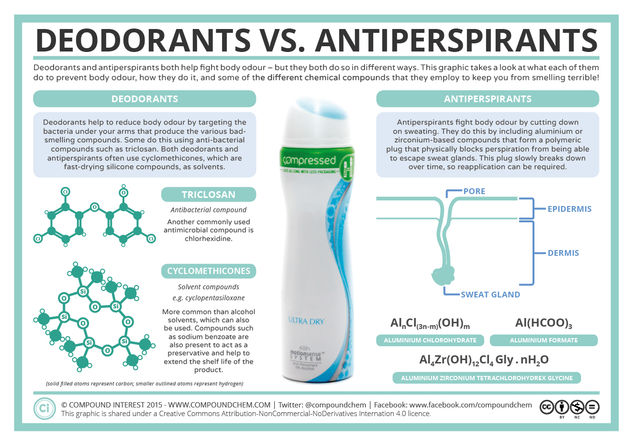© Compound InterestThe Chemistry of Deodorants vs. Antiperspirants
Deodorants and antiperspirants are products that the majority of us make use of everyday. The two terms aren’t interchangeable, however; there is a difference in the manner in which they act to reduce body odour. Today’s graphic is a collaboration with ACS Reactions looking at the chemical compounds that allow each to do their job.
The primary difference between deodorants and antiperspirants is the manner in which they reduce body odour. Body odour itself is the consequence of the bacteria living in our underarms, who produce a range of compounds likened variously to the smells of onion, cumin, and goat (yes, goat). Deodorants tackle the odour by targeting the bacteria. To do this, they contain antibacterial compounds, such as triclosan and chlorhexidine.






